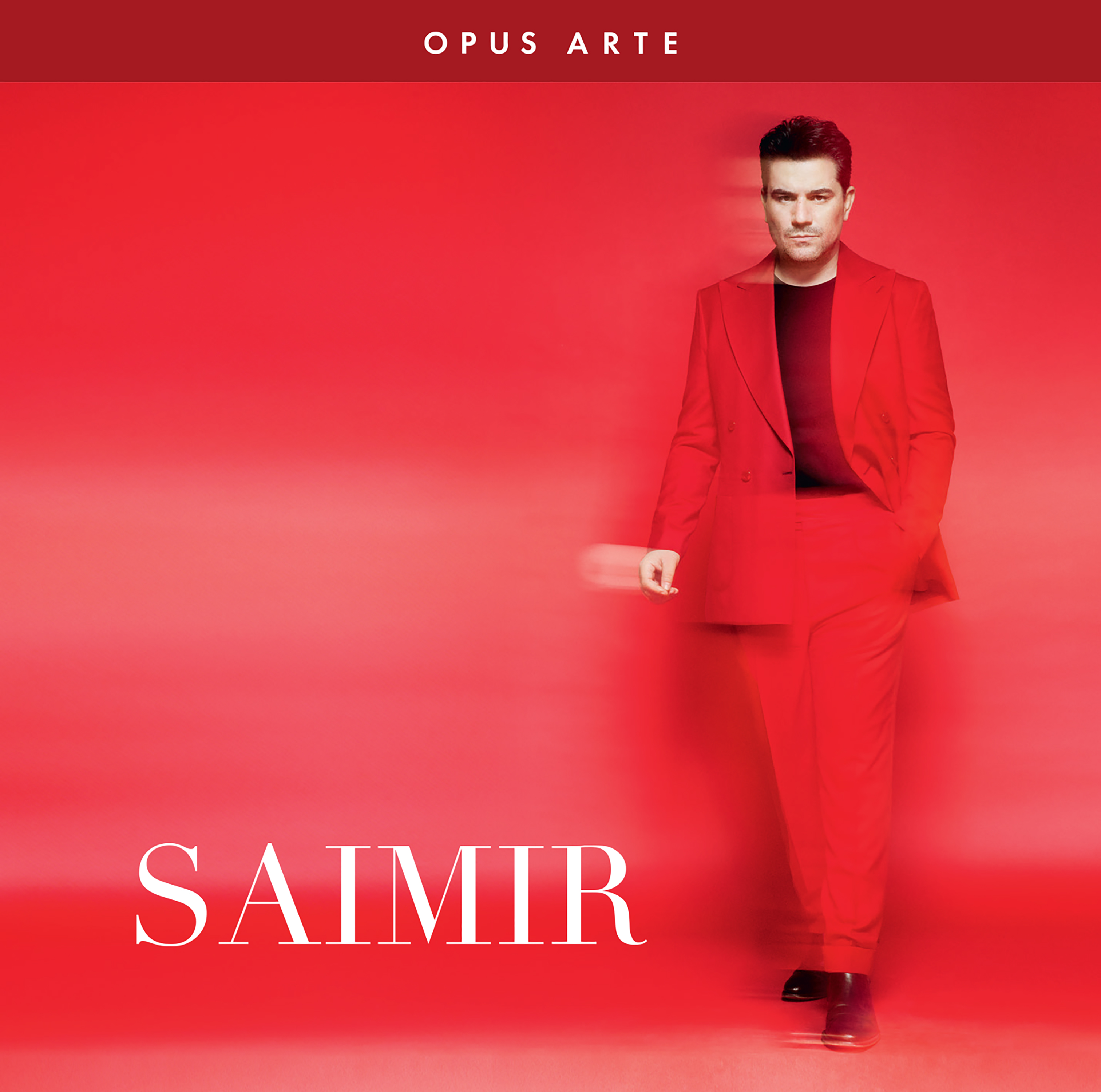Saimir Pirgu (tenor)
Saimir
Orquesta de la Comunitat Valenciana/Antonino Fogliani
rec. 2023, Auditorium of Palau de Les Arts, València, Spain
No texts and translations enclosed
Reviewed as WAV 44.1 kHz, 16 bit download
Opus Arte OACD9052D [74]
Fifteen years ago, I reviewed a recording of the opera Elena e Contantino by the Spanish composer Ramón Carnicier. I had never heard of the composer before, but was greatly enticed by the music, and the singing, and made it my Recording of the Month. In particular, I appreciated the tenor who sang Edmondo’s role, a secondary character in the play. I wrote: “The young Albanian tenor Saimir Pirgu is a find: a superb lyric tenor, smooth, with brilliant top notes and florid technique to match. Listen to his cabaletta in act I (CD 1 tr. 21) to see what I mean. This is Rossinian tenor singing of the highest order.” The recording was made in March 2005, and Pirgu was then 23 years old and in the very beginning of his career – and a brilliant career he has certainly had, reaping laurels wherever he has appeared.
Almost two decades on from that recording, he is still basically a lyric singer, with soft, beautiful pianissimos and brilliant top notes, but his voice has filled out in weight and intensity, and it seems he is prepared to take on more dramatic roles, which also his choice of repertoire for this disc hints at. He is obviously a singer who goes all-out in his readings, and in that respect he reminds me of Giuseppe Di Stefano, who in the 1950s was one of the foremost tenors in the lyric and lyric-dramatic repertoire. Di Stefano made the mistake of taking on too heavy roles too early, and his vocal cords didn’t cope with the pressure, and towards the end of the decade his voice was more or less a wreck. He continued singing nevertheless, and his last role was the emperor in Turandot in 1992, when he was 71, but his heyday was long gone. I’m sure Pirgu will not fall in that trap; he is now in his early forties his voice has surely matured beautifully. There are no signs of deterioration, apart from an occasional beat in the voice, but as yet that is marginal.
He dives in at the deep end with the most dramatic scene in Puccini’s Manon Lescaut: the end of the third act in the harbour of Le Havre, where Manon is to be deported to America. Pirgu sings with heroic tone and a truly overwhelming intensity. He cannot surpass Jussi Björling in his studio recording – nobody can – but it is still a deeply moving scene. Another role, where he has to compete with Björling, is Cavaradossi in Tosca. In the last act, the painter and revolutionary sits imprisoned on the ramparts of the Castel Sant’Angelo, waiting to be executed at dawn. He asks the jailer for a piece of paper to write a farewell letter to his beloved Tosca. This farewell to life is very touching and emotional and Pirgu catches the mood excellently with a soft lyrical opening that only gradually grows in intensity. In both cases, these are intelligent readings, and there follows a number of arias from the verismo repertoire, if we embrace a generous definition of the word. They are mostly well-known works by Puccini, Giordano, Cilea and Leoncavallo, but there are a few rarities in between. Leoncavallo’s Chatterton is probably the most surprising, reminding us that he didn’t compose only Pagliacci but almost a dozen others. Chatterton is his earliest attempt, written as early as 1876, when he was 19, but had to wait for twenty years to be performed. It is interesting to have the aria in a well sung reading. Puccini’s Le villi is also a first work, composed in 1883, and thanks to influential friends premiered the following year. The aria is good, and presented here in full-throated verismo style, as are all the other arias. We are also treated to an intense reading of Luigi’s aria from Il tabarro. This is the mature Puccini, since long established as a leading composer, and the work, together with its companion pieces Suor Angelica, and Gianni Schicchi in the trilogy Il trittico was premiered at the Metropolitan Opera in New York on 14 December 1918. Personally, I think Il tabarro is the best of the three, a true verismo work in dark colours.
Two other arias stand out in this collection. The first is“In fernem Land”from Lohengrin. It has a soft, lyrical, beautiful opening, sung with great pathos , but also with the power for the gradual crescendo. Singers from the past, like James King, Jess Thomas and – not least – Sándor Kónya had more power and fullness of tone for the finale, but singers like Nicolai Gedda and, closer in time, Klaus Florian Vogt, have shown that a more lyrical voice also can make their mark in this aria. The other work is Lensky’s aria from Eugene Onegin, here presented with the full orchestral introduction, which also is utterly sensitively sung with deep emotional insight.
Track 15 introduces us to a compatriot to Pirgu, the Albanian composer Prenk Jakova (1917 – 1969). His Mrika from 1958 is considered the first Albanian opera. Skenderbeu from which this aria comes, premiered a decade later. An atmospheric orchestral introduction is followed by a beautiful, folk-song-like aria. I would like to hear more of Jakova’s music. The remaining arias are all sung with commendable glow. In Cavaradossi’s Recondita armonia the Sacristan’s lines are also included, thanks to a guest appearance from Pirgu’s teacher Vito Maria Brunetti. The penultimate zarzuela aria is a surprise, since very few non-Spanish singers have adopted this genre. This is a pity. There are lots of wonderful arias. This is one of my favourites. Saimir Pirgu bids farewell with the obviously unavoidable Nessun dorma. Innumerable tenors have stretched their muscles in this aria and hit the high C with variable success, but Pirgu also makes his mark with a lovely pianissimo before the entrance of the ladies’ chorus – which unfortunately is not included here.
This is a comprehensive recital with a lot of brilliant heroic singing and some which is subtle and lyrical, too.
Göran Forsling



















